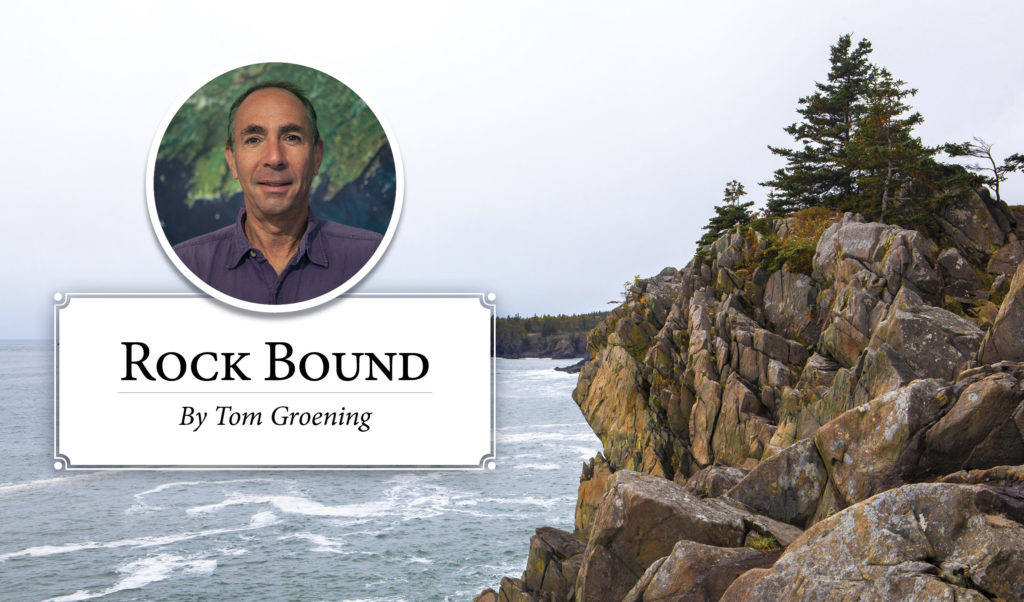By Tom Groening
If you had to describe Maine’s economy to someone who had never visited, what would you say? The caveat, of course, is the answer should reflect the state of the economy on, say, Jan. 1, not today.
Another question, admittedly nearly impossible to answer, is: What will Maine’s economy look like six months from today?
As devastating, tragic, and profoundly sad the virus has been for victims, their families, and health care workers, we now must consider the impact this crisis will have on our economic life. Just as most of us did not imagine the severity of the pandemic when we first learned of it, understanding the degree of economic disruption may also be underestimated.
But back to my first question: What was our economy like? My thesis is that it was, and has been, opportunistic, reactive, complacent, and vulnerable.
That’s not to say that state government and other institutions have been asleep at the wheel. Most of those who try to manage economies take what they can get, and make informed judgments in doing so. A restaurant owner, for example, in a town with several seafood restaurants, might be wise to tout the pasta or vegetarian options instead of lobster. That’s being opportunistic.
In the post-World War II era, Maine found its niche in manufacturing shoes, paper, lumber, and ships; processing agricultural products like potatoes, milk, and chicken; and sourcing fish—from sardines, to cod, to lobster—to other markets. It wasn’t foolish to support these industries. They were labor intensive, for the most part not seasonal, and the resources that powered them were largely renewable.
Tourism, too, began to emerge when Americans became mobile with reliable cars and roads, trending upward from the war years through the 20th century.
If opportunistic is a strategy that’s defensible, reactive is not.
Paper companies first built mills in river towns because the logs were delivered via water from up north. Then, when trucks and trains delivered the wood, the rivers were convenient conduits for waste. For decades, Maine state government looked the other way on restricting this environmental assault.
The jobs—which were plentiful and high-paying—were too valuable, so the reaction was to appease, not regulate paper mills. If we regulate, the thinking went, they’ll leave. Of course, many left anyway, some because trees grew faster in warmer climates, and others because of the global decline in paper use.
On the local level, this scenario played out more obviously, and maybe more shamefully. Too often, we’ve had a deferential attitude toward business, and instead, we should be confident of the assets we offer.
Maine tends to be complacent, too, about the successes of today, whether it’s tourism, a booming lobster fishery, or military contracts at Bath Iron Works. Conditions on the global level can change—fast, as we now know.
So what is the better way? As noted above, we must be opportunistic in the best sense of the word. What do we have, in a realistic self-assessment, that others want?
I believe our best shot, especially coming out of a downturn, is to create an economic environment that fosters entrepreneurialism.
A young person with a great idea for a new service or product might try to launch in Boston, where the stakes are high—high rent, high labor costs, and a highly competitive market. But bring that same young person to Belfast, Damariscotta, Falmouth, or Biddeford, and the plan can hatch and grow in a more nurturing environment.
The vast majority of businesses in Maine employ fewer than 50, which means this is where the action is.
So what can be done to create that nurturing environment? A short list includes:
· building broadband networks
· growing the University of Maine, the University of Southern Maine, and the community college system into a statewide powerhouse with a presence in more small towns
· tax credits for student loan payments (even if the education was out of state)
· offering tax incentives for employee ownership
· investing in the vibrancy of downtowns.
I don’t know how badly bruised—or broken—our economy will be in the next six months, but I am confident that people will still be trying to build a better mousetrap. Why not invite them to do it here?
Tom Groening is editor of The Working Waterfront.





